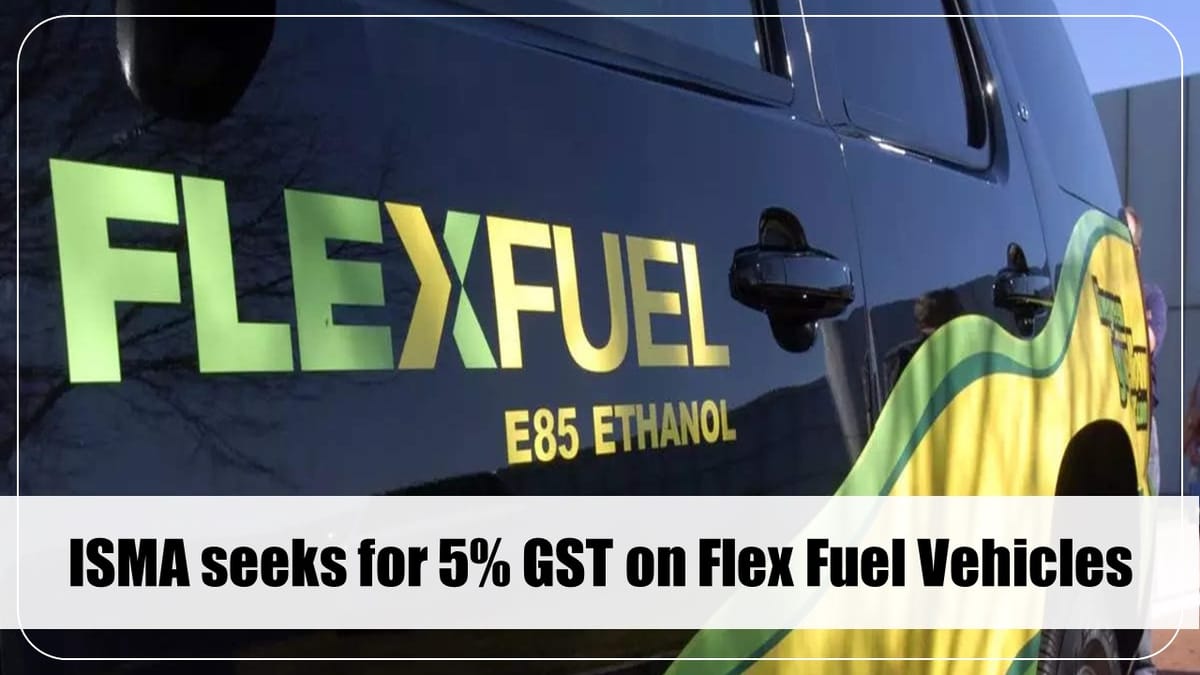Reetu | Aug 31, 2023 |

Indian Sugar Mills Association seeks for 5% GST On Flex Fuel Vehicles in line with EVs
The Indian Sugar Mills Association (ISMA) has requested for a revision in the Goods and Services Tax (GST) rate applicable to flex fuel cars. The sugar industry association advocated for flex fuel cars to be taxed at the same rate as electric vehicles.
According to a report, ISMA stated in a statement that flex fuel vehicles (FFVs) are now subject to a 28% GST, whilst electric cars are subject to a 5% GST. ISMA President Aditya Jhunjhunwala has asked the Ministry of Road Transport and Highways to modify the GST rules for FFVs.
The association stated that the government should look into changing the GST rates paid on FFVs to promote the process of combining ethanol and petrol for fuel. Automobiles powered by flex fuel use a blend of petrol and ethanol. Currently, India has reached E10, which equals 10% ethanol in fuel, and plans to attain E20 by 2025.
Jhunjhunwala further stated that this measure will assist lower India’s gasoline expenses while also reducing carbon emissions from the transportation industry. “We request parity in the GST rebate for FFVs,” he continued, emphasising that this measure will enable customers to “embrace environmentally conscious choices without bearing disproportionate financial burdens.”
The head of the group further stated that tax breaks for FFVs will “incentivize the adoption of eco-friendly vehicles.” Jhunjhunwala also stated that ISMA is in discussions with the Automotive Research Association of India (ARAI) on producing anhydrous ethanol blends with petrol.
The government has set a target of 12% ethanol-to-gasoline blending for the 2022-23 ethanol supply year, which ends in November, according to the article. Ethanol is mostly obtained from sugar mills, rice, and maize.
Brazil’s successful incorporation of such mixtures has inspired India to pursue greener fuel choices.
In case of any Doubt regarding Membership you can mail us at contact@studycafe.in
Join Studycafe's WhatsApp Group or Telegram Channel for Latest Updates on Government Job, Sarkari Naukri, Private Jobs, Income Tax, GST, Companies Act, Judgements and CA, CS, ICWA, and MUCH MORE!"